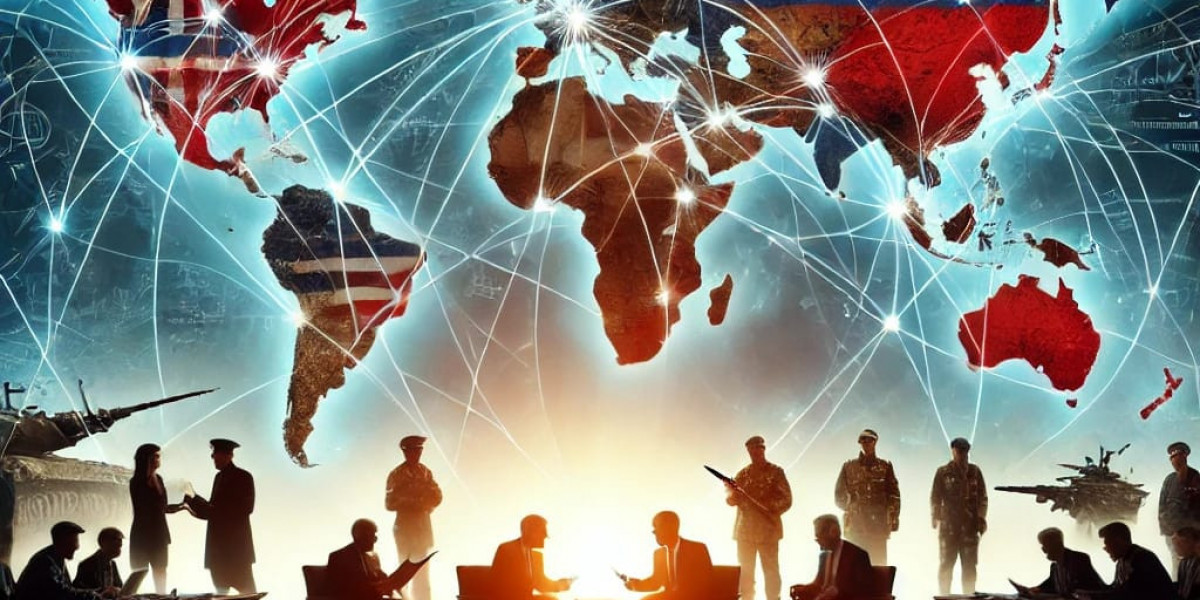In today’s interconnected world, geopolitical tensions are increasingly shaping the global economic and political landscape. From strained U.S.-China relations to escalating conflicts in Eastern Europe and the Middle East, shifting alliances and economic uncertainties are driving new dynamics in international relations. As nations recalibrate their foreign policies, the consequences extend beyond diplomacy, affecting global trade, financial markets, and economic stability.
Economic Uncertainty and Trade Realignments
Trade partnerships have become a focal point in the evolving geopolitical chessboard. With countries prioritizing self-sufficiency and national security, supply chains are undergoing significant transformations. For instance, as reported by The TradeVariety, recent U.S. sanctions on China’s semiconductor industry have disrupted global technology supply chains, forcing nations to seek alternative sources. Similarly, European countries are diversifying their energy imports in response to the ongoing Russia-Ukraine conflict, leading to new trade alliances in the energy sector.
Meanwhile, regional trade agreements are gaining traction, with blocs such as BRICS (Brazil, Russia, India, China, and South Africa) pushing for alternative financial systems to reduce dependence on the U.S. dollar. This move could reshape global commerce and challenge the traditional economic hierarchy dominated by Western economies.
Rising Conflicts and Military Alliances
Ongoing conflicts continue to alter military alliances and defense strategies worldwide. According to NBC31, NATO has expanded its presence in Eastern Europe, strengthening military ties with countries like Finland and Sweden in response to growing security threats. Additionally, the U.S. and its Pacific allies, including Japan and Australia, are enhancing their military cooperation to counter China’s increasing influence in the Indo-Pacific region.
The Middle East remains a geopolitical hotspot, with new coalitions forming amid rising tensions between Iran, Israel, and Arab nations. The Abraham Accords have facilitated closer economic and security ties between Israel and Gulf states, while Iran continues to forge deeper alliances with Russia and China. These shifts highlight a new era of strategic realignments that will shape regional and global stability in the years to come.
Impact on Global Financial Markets
Geopolitical uncertainty has had a profound impact on financial markets, driving volatility and reshaping investor sentiment. Analysts at Money Friction report that stock markets worldwide have reacted sharply to political instability, with investors seeking refuge in safe-haven assets such as gold and the U.S. dollar. Energy markets have also been volatile, with oil and gas prices fluctuating based on geopolitical developments.
Meanwhile, financial experts at Stock Trend Online highlight how geopolitical risks have influenced central bank policies, prompting interest rate adjustments and monetary interventions to stabilize economies. Investors are now closely monitoring global events, as political disruptions could trigger market sell-offs or create new investment opportunities in emerging sectors like defense technology and cybersecurity.
Conclusion
As geopolitical tensions continue to evolve, nations and businesses must adapt to shifting alliances and economic uncertainties. Trade disruptions, military strategies, and financial market fluctuations will remain critical indicators of the global landscape. With key players repositioning themselves on the world stage, the coming years will be marked by significant geopolitical and economic transformations.







